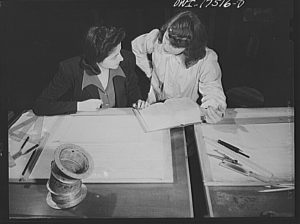Unit 2: Performance & Development

Description: This unit focuses on individual performance and development within organizations. Students explore how to measure and manage performance, design effective training programs, understand what motivates people at work, and examine the attitudes that influence workplace behavior. The unit bridges individual assessment with performance optimization and includes emerging topics in human factors and ergonomics.
Why This Unit is Important: Understanding performance and development is crucial for helping individuals and organizations achieve their potential – skills that directly transfer to counseling and therapeutic settings. Future counselors will work in organizations where they need to understand performance feedback, receive evaluations, and potentially supervise others. More importantly, many of your future clients will struggle with workplace performance issues, motivation problems, or career development challenges that you’ll be better equipped to address with this knowledge.
This unit teaches students how to create systems that accurately measure performance, provide meaningful feedback, develop skills, and foster motivation – all core competencies for effective counseling supervision and practice management. These concepts also help you understand the workplace stressors your clients face, making you more empathetic and effective when treating work-related anxiety, depression, or adjustment disorders.
Whether you’re working in a community mental health center that evaluates your performance, managing your own practice and training new therapists, or helping clients develop better work habits and motivation, these topics provide essential foundations for professional success and client care.
Unit Learning Objectives: By the end of this unit students will be able to…
- ULO1: Design performance measurement systems that are reliable, valid, and useful for decision-making. (CLO2, CLO4, APA2, APA5)
- ULO2: Develop performance management strategies that improve individual and organizational effectiveness. (CLO4, APA5)
- ULO3: Create training programs based on learning principles and organizational needs analysis. (CLO4, APA5)
- ULO4: Apply human factors principles to optimize the interaction between people and work systems. (CLO1, CLO4, APA1, APA5)
- ULO5: Analyze motivation theories and job attitudes to predict and influence workplace behavior. (CLO1, CLO4, APA1, APA5)

Media Attributions
- Industrial Training for Women © Marjory Collins is licensed under a Public Domain license
- Business Team Meeting © Dylan Gillis is licensed under a Public Domain license
